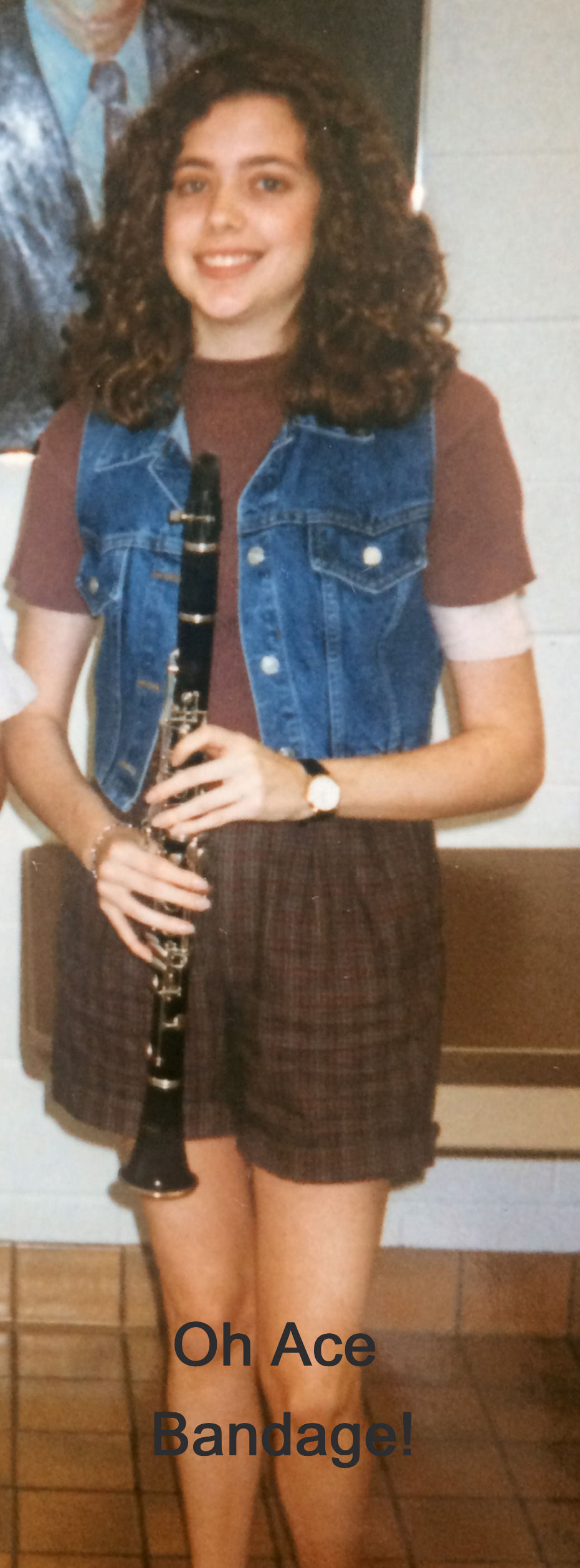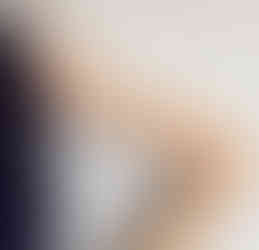Scars, We do Become Them.
- hatheoharis
- Apr 29, 2020
- 9 min read
The definition of a scar, "A growth of tissue marking the spot where skin has healed after an injury"; "A lasting psychological injury resulting from suffering or trauma", and "Any blemish remaining as a trace of or resulting from injury or use (Dictionary.com)."

I love to swim. When I was a kid, I swam so much in our above ground pool behind our split level house in the suburban town of Maryland Heights, Missouri, my blonde hair turned green from chronic exposure to chlorine. If I wasn't in our pool, I'd be in a swimsuit awaiting pool time. The pool was my place. I could hold my breath under water for what seemed like forever, listening to the water slapping the pool rims and the muffled sounds of the outdoor world. I was in the water after breakfast, after lunch, after dinner and for the amazing experience of night swimming, the pool lights creating a translucent quiet, just me and the water. My mom made me wait 30 minutes after eating so I didn't get a cramp and die (is this still a thing?), 30 minutes too long. Of course, my Barbie dolls engaged in their fare share of pool time, so much so my older sister had the unfortunate chore of removing their hair from the clogged pool filter. It wasn't my fault they also liked to swim.

When I was 14, I stopped swimming. An odd looking 2" wide purple spongy growth on my upper left arm turned out to be a non-recurring cancerous skin tumor. When I was 3 and my mom first noticed it, my pediatrician, Dr. Harvel, a kind older gentleman whose office was filled with toys and Highlights magazines said to my mom, "Ah, it's nothing to worry about. Just a mole." He gave me a Dum Dums lollypop and that was the last concern of it we had. Until, it wasn't. 10 years later, a simple removal procedure of the tumor turned into 5 surgeries resulting in 2 large physical scars - a 4" long x 3" wide x 2" deep defect on my left arm, a corresponding mark on my left butt cheek (the surgery was so invasive I needed a skin graft), and a corresponding deep emotional scar. And, I stopped swimming.

Major surgery is traumatic, unknown, quiet, isolating and when you wake up, your life is different. While your parents and family do their very best to be comforting and the medical professionals portray confidence, the moment you are wheeled into the frigid cold operating room and the nurse bares your vulnerable 14 year old chest in front of multiple strangers in order to place frozen cold heart monitoring pads, you are completely alone.
14 is a tough age for anyone. 14 with a highly invasive and cosmetically altering surgery is devastating. I was so excited to get the tumor removed, thinking magically, "I'll finally get to have this darn thing out and get to wear whatever I want without people staring at this funky spongy gross thing." After the 2nd surgery during which the defect was created, I realized my dream of freedom of expression was scraped away.
When they said, "We have to go back in and get it all out", I didn't realize what they really meant. Add to this, they ran out of time during the 2nd "get it all out" procedure to close the wound with a skin graft, resulting in me waking up to discover my arm heavily bandaged and a pounding pulsating throbbing pain radiating as there was nothing but layers upon layers of white gauze covering a gaping red bloody mess. So, what they really meant was, "We have to dig a huge hole into your upper arm, remove part of your triceps muscle which will likely result in some changed functioning of your arm, scoop out the remaining parts of the tumor which will change your arm into looking like a shark had a tasty snack, and you'll be faced with life altering insecurities for the next 10, maybe, 15 years. Sound good?".
The day after my hole digging 2nd surgery, we met my plastic surgeon - who by the way until this appointment, I absolutely adored because he was kind, funny and compassionate. Sitting on the cold metal table in the examination room, the surgeon entered the office not alone, but with another physician and a guy with a huge camera.
No one told us there would be a photojournalist documenting the outcome for some medical journal because the tumor is rare to occur on the arm and on a person so young. They also didn't tell me that they were going to remove the pile of bandages covering my raw flesh defect to inspect and take photographs.
If you have bandages covering a sealed wound removed, the pain is tolerable. When bandages covering a raw wound are removed, the pain is excruciating. I recall I cried but when I heard my mother start to wail into my shoulder and saw out of the corner of my eye, my father look away and nearly faint, my pain became muffled and I faded into a place of numbness, thinking, "What is going on? Why is this guy taking photos? And, what is going on with my parents?" The photojournalist seemed very put-together in his crisp dark tan - or was it brown - suit and large camera, focusing the lens on his subject, my forever changed arm. "Was someone going to pick up my dad who seems to be fainting? And, can you get my mom some Kleenex because she's creating quite the wet spot on my shirt." Holy hell, I just wanted the damn tumor out; I didn't want you to dig a hole into my arm which now looks like shark chum.
It's natural to stare. When we see something outside of our norm (positive or negative), is interesting to us, is attractive or unattractive, or triggers an awakening of our intrinsic biases, we stare. We often struggle to stop this natural reaction. Even me who has had the experience of invasive surgery resulting in a forever changed appearance, I too have a tendency to stare.

Unlike the filters we can now use to hide our true selves (e.g., Instagram, Facebook, etc..), I hid my scar in real time. For all of my high school years and college, a thick ace bandage with it's corresponding metal latches was my filter. It was my shield, buffering my own insecurities and warding off intrusive glances. When the weather was warm and more skin was exposed, I wrapped my arm in the ace bandage. When the bandage loosened and slowly crept down my arm to reveal some scar, I re-wrapped it as tight as possible. I didn't wear sleeveless shirts and swimsuits. If I ever needed to buy a dress, I skipped out on the strapless or sleeveless ones I wanted and opted for those which came with a wrap or bolero jacket. The colder months were helpful because I could be just like everyone else, long sleeves and sweaters. During my sophomore year of college when our sorority made us wear white togas to initiate freshman and my arm was in full exposure (sorry sisters, but this is a super weird tradition and my good friend and I totally took pictures of our outfits which the code forbids!), I felt tremendous angst and made sure to wear the bandage. When my friends got married and they all chose strapless or sleeveless dresses (my childhood best friend took pity on me and let me wear a sheen shawl), I wore it. I really hated that stupid bandage but without it, I felt vulnerable and exposed.
The body reacts strongly to flesh being cut, triggering red, inflamed and aggravated skin bound together by confused collagen fibers striving to rapidly close the door on an intruder, forever numbed to sensation. Over time, the scar lessens to a subtle white, off-white, sometimes, pinkish color, never returning to the calm skin it once was. It shows the world a visceral injury and begs the question, "What happened?!".
10 years after my last surgery (I had 5 total, 3 when I was 14 and 2 when I was 19 ; 1st to remove the big tumor, 2nd to remove the rest, 3rd to place a skin graft, 4th to remove the skin graft and stretch skin from underneath arm to the top and 5th to revise the scar and make it look "neater"), I saw a plastic surgeon outside of Boston, Massachusetts. His office was filled with photos of beautiful people, magazines promising a flat belly in 4 weeks and a treatment room in which the examination table was located in the center of an otherwise vacant space. He wore cowboy boots and his hair didn't move when he walked. I asked him what he could do to make my arm normal again. He said he could get me to a place where it would be 90% normal. The procedure sounded extremely complicated (take fat from my mid section and transfer it to my left arm, leaving me with 2 areas of healing), painful, and frankly, stupid. In that moment, I knew I was over it. I left his office feeling confident I no longer cared to fix my scar and in turn, much closer to finding acceptance.
A physical scar holds a huge story of who we were and who we are. My initial heavy insecurities morphed into a decade of fear and hiding. I became my scar - numb, raw, vulnerable, unwillingly exposed, depressed, and different. It took me a while to learn that my self is not defined nor is it loved because of a whole or missing part. I struggled to love my self (not just my body) and to let all of me be seen. My scar heightened insecurities. It also helped me overcome them.
I no longer have those ace bandages or the metal hooks which close the wrap. Recently, I found a pile of them (why did I keep these?!?) and promptly threw them into the trash.
After decades of hiding, I threw away the doubts and insecurities. I now wear sleeveless t-shirts and dresses. Despite some muscle missing from my arm, I have adjusted to this missing part and have very little physical limitations - case in point, I build amazing rock walls and terraces for our home and garden (a mason once said to me, "You dry stack better than most [people] I know!"). I can place my body into contorted yoga arm balances which require mental focus and strength. It is worth nothing, yoga was instrumental in my healing and reaching self-acceptance. I can still remember the first yoga class (this goes out to you Jen Ryan of the Yoga Loft in Wilmington, MA) during which I took off my arm covering t-shirt and practiced in the sports tank underneath; ooh, so exposing and freeing. And, I've returned to swimming.
Here's what I've learned from my scar aka it took me 20 years to learn these things:
1. I don't need a perfect arm or perfect body to be me. They are pieces of me and together, they add to my story.
2. My physical difference has challenged my ideas of what it means to be normal and beautiful. My scar serves as a constant reminder that I don't have to be perfect and it's okay to have limitations.
3. I don't need a perfect arm to be able to do the things I love. When a difficulty is in your path, find a way to acknowledge it, accept it and move through it.
4. For a long time, my scar made me feel less than. Once I accepted it as part of me, it no longer defined me.
5. Ace bandages are temporary covers which allow for healing; once healed, the wound needs to breathe life. They are otherwise cumbersome, uncomfortable and hot.
6. My scar doesn't choose my clothing. I do.
7. Some people are unkind with their glances. Whether they mean to be, I don't know. After your initial stare, please feel free to ask about my scar. Otherwise, I can be emotional with my responses and sometimes say, "What?!?! Have you never seen a scar before?!?"
8. My arm doesn't need to be fixed.
9. Humor can be helpful and powerful. When the rare person asks what happened, I sometimes say, "Shark bite". When they react with eyebrows raised and, "Really?!?". I say, "Nah, it was just cancer." 10. I understand now the pain and suffering my parents went through as they stood by and watched their youngest child undergo 5 surgeries, helpless to stop the defect and worried I would be forever scarred. As I am now a parent, I get it. Thank you to my Dad who when the health insurance company denied coverage after the 2nd surgery because any additional surgeries were deemed "cosmetic", he sent the company a scathing letter of reprimand whereupon they changed their review and allowed for coverage. Thank you to my Mom for first noticing the dark spot and taking me to see Dr. Harvel. It's not your fault that he didn't know what it would become nor is it your fault that it turned into a monster. It is what it is, Mom - no big deal. Thank you also for washing my hair in the sink when I couldn't take a shower for 2 weeks and cleaning the oddly fascinating new skin of the skin graft site. Thank you to all my family for being there. Thank you to my friends who never judged. And, thank you to my sister and her husband for initially referring to my skin grafted arm as my butt arm; you made me laugh.
11. It really isn't a big deal. It's just a scar.










Comments